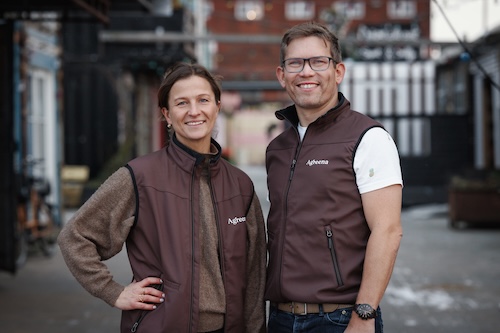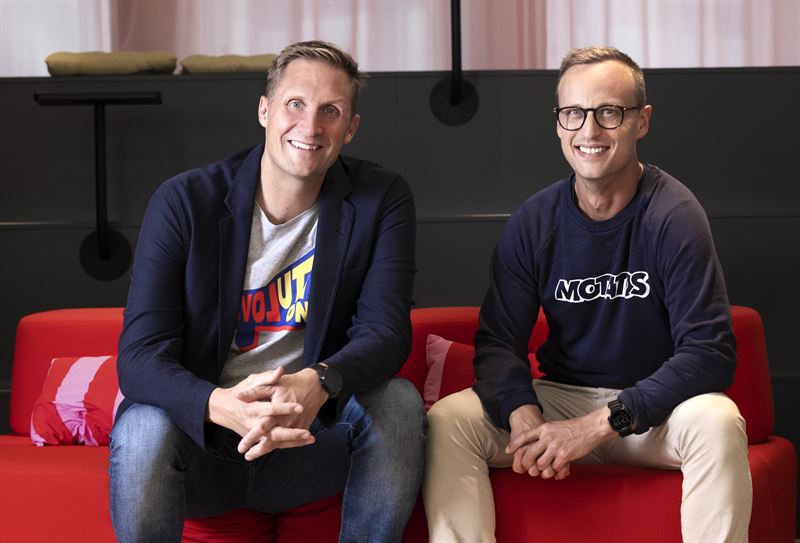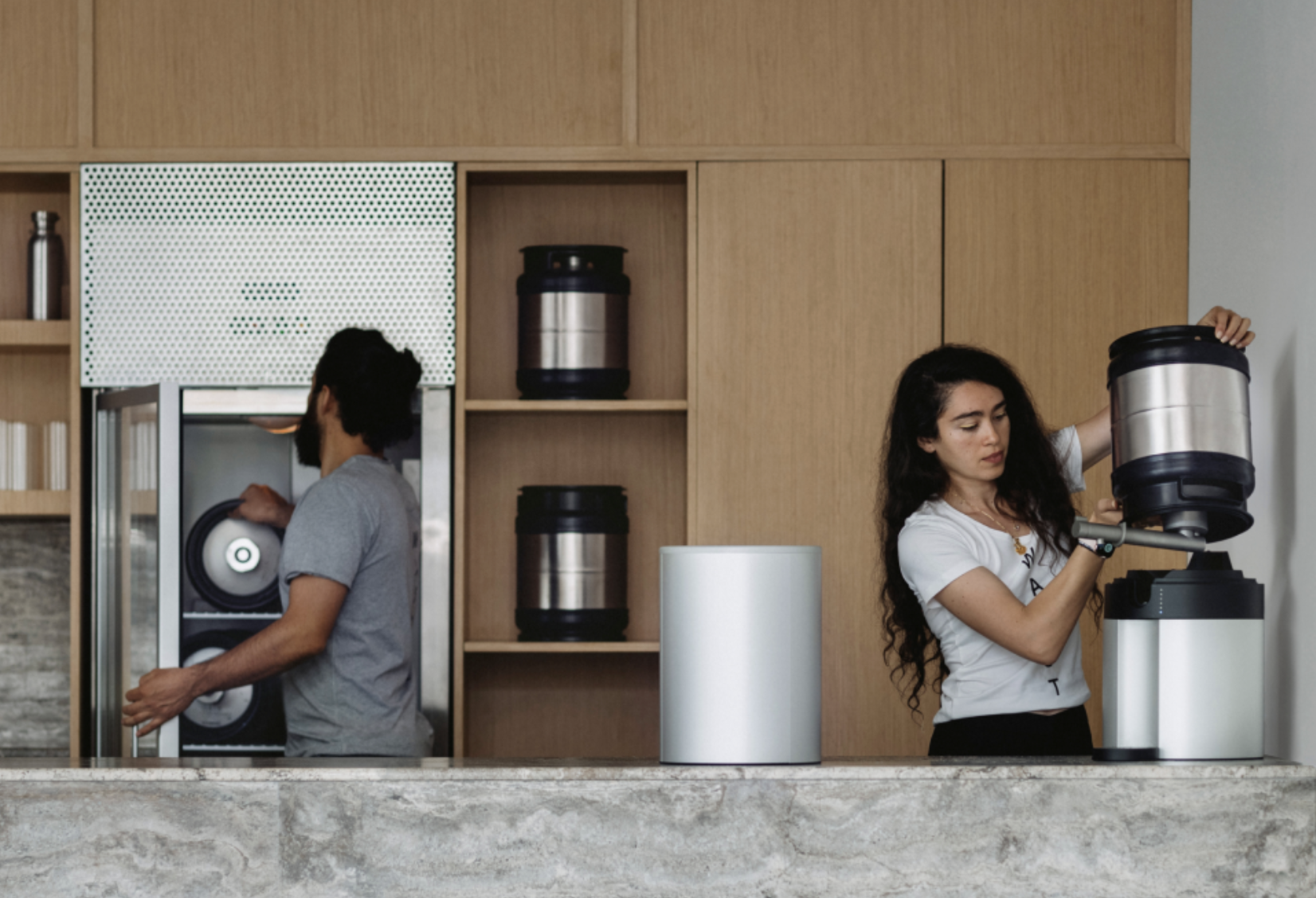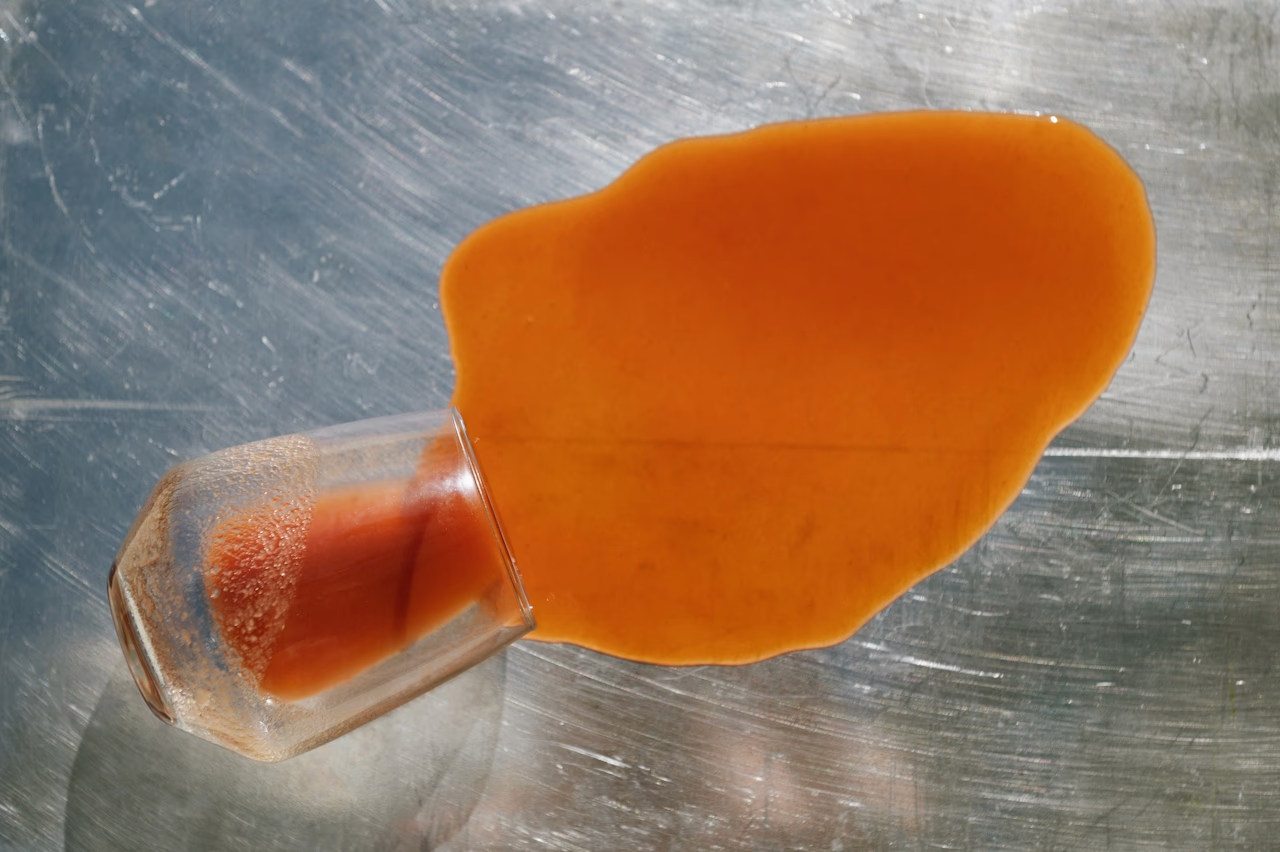Portfolio partners
Category changers we've partnered with

NewLeaf Symbiotics
NewLeaf has pioneered a unique family of microbes that benefits growers and their soil. Its biostimulants boost crop yields, while its bioprotection products repel pests. The company continues advancing innovations for new crops, improved nitrogen efficiency, and methane reduction to support sustainable global food production.

NewLeaf Symbiotics
NewLeaf has pioneered a unique family of microbes that benefits growers and their soil. Its biostimulants boost crop yields, while its bioprotection products repel pests. The company continues advancing innovations for new crops, improved nitrogen efficiency, and methane reduction to support sustainable global food production.

Pioneering microbes to unlock healthier plants and higher yields
NewLeaf Symbiotics’ mission is to develop science-led and science-proven technologies that help farmers around the world feed a growing population more sustainably. As Champions of Pink Performance, NewLeaf has spent over a decade researching and developing agricultural biological products derived from pink-pigmented facultative methylotrophs (PPFMs), a family of microbes found in every plant on the planet. By working with specific PPFM strains, NewLeaf has developed biostimulants that increase yields for various crops, as well as a bioprotection technology shown to repel corn rootworm. The company continues to research and develop products for new crops and pests, as well as novel technologies for nitrogen use efficiency and methane reduction.
PPFM technology supports growers and the planet by increasing yields while decreasing the use of inputs like fertilizers and water and reducing emissions from crop production. NewLeaf Symbiotics contributes to an agricultural system that benefits growers, meets people's needs, and reduces planetary boundary pressure.

Planted
Planted is changing the way we eat with clean-label, plant-based meats that utilize proprietary structuring and fermentation technologies. Available across Europe, the products replicate meat’s taste and texture while outperforming animal meat in sustainability, health, and efficiency.

Planted
Planted is changing the way we eat with clean-label, plant-based meats that utilize proprietary structuring and fermentation technologies. Available across Europe, the products replicate meat’s taste and texture while outperforming animal meat in sustainability, health, and efficiency.

The new standard for plant-based meat
Planted combines proprietary structuring and fermentation technologies to produce meat from plant proteins, focusing on delicious taste, meaty and juicy texture, while only using clean ingredients. Planted designs and structures its meat in any size, shape, and fibrous texture and is driven by the conviction that they will outperform animal meat in the future in terms of taste, sustainability, health, efficiency and price. Committed to using only clean ingredients and no additives in all its products, Planted is setting a completely new standard in the plant-based meat category, making it a healthy and sustainable choice for all. Truly better than meat from animals.
A growing population along with increasing life expectancy and incomes are major drivers for the rise in global meat demand. However, the current scale of the animal meat industry is beyond unsustainable. Planted wants to change that. The Zurich-based FoodTech spin-off from the Swiss Technical Institute of Technology (ETH) was founded in 2019 and was quick to build intellectual property around their technological approach, currently holding several patents.
Planted’s principal meat production is in a glass-house production facility in Kemptthal (Zurich) Switzerland -the first transparent meat production open to the public.
Planted meats are available in over 5000 restaurants and more than 6000 retail outlets across Switzerland, Germany, Austria, France, Italy, UK and BeNeLux as well as over its own Europewide webshop. The Planted meat ranges, each consisting of different protein sources (peas, oat, sunflowers), currently include planted.chicken, planted.pulled, planted.kebab, planted.schnitzel and planted.bratwurst. In addition, there are various limited editions in close collaboration with star chefs such as Tim Raue, Nenad Mlinarevic or Sebastian Copien. However, rest assured, the science driven team is hungry for change and working hard to revolutionize the food chain in Planted's factory and science labs in Switzerland.
Animal agriculture and overall food production account for 25% of global greenhouse gas (GHG) emissions, while 99% of animals in factory farms live with little to no animal welfare protection. Furthermore, 80% of global antibiotics are administered to animals in factory farming, contributing to the growing problem of antibiotic resistance.
If the world achieves the target of just 11% alternative protein usage versus traditional proteins by 2035, the reduction of 0.85 gigatons of CO2e worldwide/year would offset the emissions from the entire global airline industry. By offering plant-based alternatives, Planted plays a crucial role in reducing GHG emissions and promoting a more sustainable future.

Agreena
Agreena, a Copenhagen-based agtech company, empowers farmers to adopt regenerative agriculture through its AgreenaCarbon program. Using AI and satellite data, it verifies soil carbon credits under Verra's standards, supporting 2,300 farmers across 20 countries and driving Europe’s largest soil carbon initiative.

Agreena
Agreena, a Copenhagen-based agtech company, empowers farmers to adopt regenerative agriculture through its AgreenaCarbon program. Using AI and satellite data, it verifies soil carbon credits under Verra's standards, supporting 2,300 farmers across 20 countries and driving Europe’s largest soil carbon initiative.

Scaling regenerative agriculture through finance and technology
Agreena is a Copenhagen-based agtech company dedicated to helping farmers transition towards regenerative agriculture. Through its flagship initiative, AgreenaCarbon, farmers adopt practices such as reduced tillage, cover cropping, and crop rotations, improving soil health and enabling the generation of carbon credits. These credits, verified under the stringent standards of the Verified Carbon Standard (VCS), can then be sold to companies aiming to offset their emissions.
The company's digital platform leverages AI and satellite data to monitor and verify carbon sequestration in soil, ensuring transparency and credibility in the carbon credits issued. This approach provides farmers with valuable insights into their regenerative practices and allows businesses to confidently utilize these verified carbon credits for their sustainability reporting.
Agreena stands as Europe's largest soil carbon program, partnering with over 2,300 farmers across 20 European countries, covering approximately 4.5 million hectares of farmland. In early 2025, Agreena reached a major milestone when its AgreenaCarbon Project became the first large-scale agricultural cropland initiative registered under Verra's Verified Carbon Standard methodology for Improved Agricultural Land Management. This achievement marks a significant advancement for the soil carbon market and the broader regenerative agriculture movement.
In addition to supporting individual farmers, Agreena provides strategic solutions for companies seeking to achieve ambitious sustainability targets. By facilitating access to credible carbon credits and offering insetting strategies, Agreena enables businesses to invest directly in their supply chains, reducing emissions and promoting long-term sustainable agricultural practices.
Founded with strong support from Danish farmers and global investors, Agreena continues to expand its presence and impact. With offices in Copenhagen and London, and a diverse team of agricultural and technological experts, the company is committed to transforming agriculture into a climate-positive industry, advancing environmental sustainability while enhancing the resilience and productivity of farmland across Europe.

Nick's
Nick's makes low-sugar, low-calorie treats that taste surprisingly craveable. Since 2017, it has become a leading better-for-you brand across Europe and the US, revolutionizing healthy eating through science-driven, guilt-free indulgence.

Nick's
Nick's makes low-sugar, low-calorie treats that taste surprisingly craveable. Since 2017, it has become a leading better-for-you brand across Europe and the US, revolutionizing healthy eating through science-driven, guilt-free indulgence.

Treats to die for that won’t kill you
Nick's makes tasty, healthy, no-compromise treats that can compete with even the biggest brands.
In 2014, Niclas “Nick” Luthman was diagnosed as a pre-diabetic. He obsessively learned about nutrition and started following a strict low-carb, anti-inflammatory diet. In 2017, Nick's launched its first low-sugar chocolate kexbar in Sweden, and in 2020 Nick's entered the US market with its now legendary pint ice cream.
Today, Nick's sells tens of millions of bars, confectionery, and ice creams annually, making the company the leading better-for-you brand on two continents.
The trick? Make it tasty!
As Oscar Wilde famously put it: “The only way to get rid of a temptation is to yield to it.” The human brain has evolved to crave food high in sugars and fat. However, our excessive consumption of empty calories leads to the metabolic syndrome and diseases like type 2 diabetes, coronary diseases, stroke, and premature death. The annual cost of the malady, including health care and loss of potential economic activity, is in the trillions of dollars.
In the shift to a healthy diet, it is equally important to reduce unhealthy ingredients such as sugar and empty calories as it is to consume enough nutrients and fiber. Stop smoking before you take up jogging. Thanks to its food scientists and the recent development of healthy and safe novel ingredients, Nick's can create indulgent products low on calories and sugars.
It’s a health revolution disguised as irresistible temptations.

Everytable
Everytable, a Los Angeles-based social enterprise, offers fresh, scratch-cooked, community-inspired meals that are accessible to everyone, everywhere. With 38 California locations, it has served over ten million meals, supports vulnerable communities, and empowers marginalized entrepreneurs through its Social Equity Franchise program.

Everytable
Everytable, a Los Angeles-based social enterprise, offers fresh, scratch-cooked, community-inspired meals that are accessible to everyone, everywhere. With 38 California locations, it has served over ten million meals, supports vulnerable communities, and empowers marginalized entrepreneurs through its Social Equity Franchise program.

Fresh, scratch-cooked, community-inspired meals, accessible to everyone, everywhere.
Everytable is a mission-driven social enterprise based in Los Angeles that provides nutritious, scratch-cooked, community-inspired meals that are accessible for everyone. Meals are made fresh daily using whole foods ingredients and priced according to the neighborhood being served. In addition to its 38 locations in California for in-person or online ordering, Everytable is a major meal provider for programs that serve seniors, students, and people experiencing homelessness and has expanded into other segments such as schools, businesses and more.
Since 2020 it has served over 10 million meals to people at risk of hunger. In 2021 Everytable launched a trailblazing Social Equity Franchise program that sets social entrepreneurs from marginalized communities on a pathway to owning multiple Everytable locations. Everytable further seeks to support local communities with its Pay It Forward program which allows guests to purchase meals for those in need. Learn more at everytable.com

Matsmart / Motatos
Matsmart / Motatos, founded in Sweden in 2013, is Europe’s leading online discount food store, rescuing surplus products from waste. Operating across seven countries, it offers major discounts, reduces food waste, and helps cut global greenhouse gas emissions through sustainable consumption and efficient supply chains.

Matsmart / Motatos
Matsmart / Motatos, founded in Sweden in 2013, is Europe’s leading online discount food store, rescuing surplus products from waste. Operating across seven countries, it offers major discounts, reduces food waste, and helps cut global greenhouse gas emissions through sustainable consumption and efficient supply chains.

A world without food waste
Matsmart/Motatos is the leading European discount food store online, saving products from food producers and wholesalers that would otherwise be thrown away due to overproduction, faulty packaging, seasonal trends, or approaching best-before dates.
Thanks to its automatic warehouse solutions, partnerships with major retailers, and dedication to customer experience, Motatos not only prevents these products from going to waste, but also manages to offer them at significant discounts. This enables end consumers to enjoy better deals than they would find at retail prices.
Matsmart was founded in Sweden in 2013. Today the company also saves food in Finland, Germany, Denmark, the UK, Swizerland, and Austria under the Motatos brand.
Food loss and waste contribute to 10% of global greenhouse gas (GHG) emissions, with inefficient supply chains leading to an annual loss of approximately 180 billion USD. Motatos combats this issue by ensuring that surplus food and fast-moving consumer goods products are used efficiently.
If successful in shifting the paradigm of global food waste, Motatos has the potential to contribute to a 10% reduction in global GHG emissions. While surplus inventory is an inevitable reality, ensuring that these products are used and accounted for can have a significant environmental impact. By offering sustainable and affordable options to consumers, Motatos supports a greener future for all.

Early stage partnerships
To build connections across the agrifood ecosystem, Re:food partners with early-stage venture funds in Europe and the US, and holds an exclusive selection of early-stage companies with the potential to grow into category-defining companies.

Early stage partnerships
To build connections across the agrifood ecosystem, Re:food partners with early-stage venture funds in Europe and the US, and holds an exclusive selection of early-stage companies with the potential to grow into category-defining companies.

Visionary fund managers and entrepreneurs leading the nutrition transition
Re:food has invested in partnerships with early-stage venture funds in Europe and the US:
- FTW Ventures, a San Francisco based early-stage venture firm that invests in bold innovators solving the biggest challenges in the food system.
- Kost Capital, a Copenhagen-based pre-seed and seed venture fund with a portfolio of European B2B food, ingredient, and technology companies driving the nutrition transition.
- FoodSparks®, an European early-stage seed fund affiliated with EIT Food.
Our portfolio also holds an exclusive selection of early-stage companies with the potential to grow into category-defining companies, including:
- Pow.Bio, making sustainable biomade products economically viable by cutting biomanufacturing costs through AI-driven continuous fermentation. Its dual-chamber system separates microbial growth from production, boosting efficiency up to fivefold and reducing costs by 70%, enabling scalable, cost-competitive biomanufacturing across industries, including food.
- Wayout, providing water-as-a-service through patented, containerized systems that transform any water source into safe drinking water. Eliminating plastic bottles and chemicals, its micro-factories serve thousands sustainably, reducing CO₂ emissions, plastic waste, and microplastic pollution while addressing global water access challenges.
- The Mediterranean Food Lab transforming plant-based ingredients into rich, savory flavors through solid-state fermentation. Founded by chefs, it creates clean-label umami ingredients from grains, legumes, and upcycled food sidestreams. Its SHO product line offers natural, fermented stocks, enhancing taste while promoting sustainability and healthy eating.